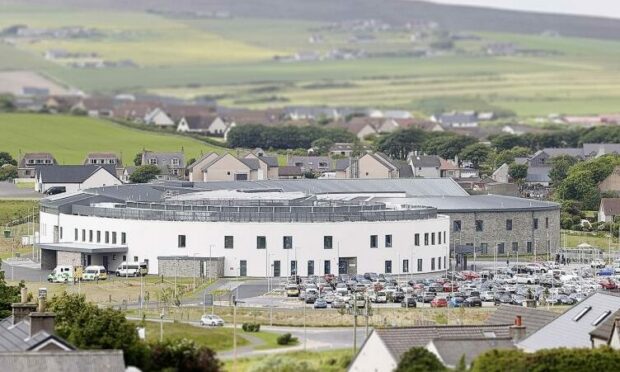A pilot home care initiative is to become permanent after it saved nearly £500,000 and substantially freed up beds at Orkney’s Balfour Hospital.
A report on the success of the year-long Home First pilot was presented to Orkney Health and Care’s (OHAC) Integrated Joint Board on Wednesday.
The initiative increases the independence of patients leaving the hospital and returning home.
It does this by allowing patients to be assessed in their homes by occupational therapists.
It uses a “discharge to assess” model. This is focused on care staff doing tasks with patients, rather than doing things for them.
The report showed that this resulted in 530 hospital bed days and saved an estimated value of £499,970.
The pilot project also resulted in four people being allowed to remain in their own homes, rather than going into residential care.
Project focuses on doing things with patients – rather than for them
Evidence from pilot shows that even a delay of one day in a patient being discharged from hospital results in “avoidable harm”, such as picking up an infection in the hospital or risk of a fall.
At the meeting it was agreed that the project should be made permanent in Orkney. A care hub should be developed, offering a single point of contact for potential service users.
During the meeting, what the teams in Orkney have been doing was said to be ” leading across Scotland”.
The chairwoman of the joint board, Issy Grieve, also said the statistics provided were “hugely heartwarming”.
However, it was recognised that Home First doesn’t solve every problem. There is still a problem with people waiting for up to eight weeks to receive care at home. This is due to a lack of home care staff.
Staffing shortages remain in Orkney’s home care service
Lynda Baird, OHAC’s head of health and community care, said there has already been one recruitment drive and there will be another.
The staff vacancies are down to vacancies, long-term sickness, and Covid absences.
Councillor Steve Sankey also said Home First seemed to him to be a “rather obvious idea”.
He asked why it hadn’t been thought of five years ago.
The councillor was told that there are challenges around investment and staffing, which make adopting such game-changing models a risk.
